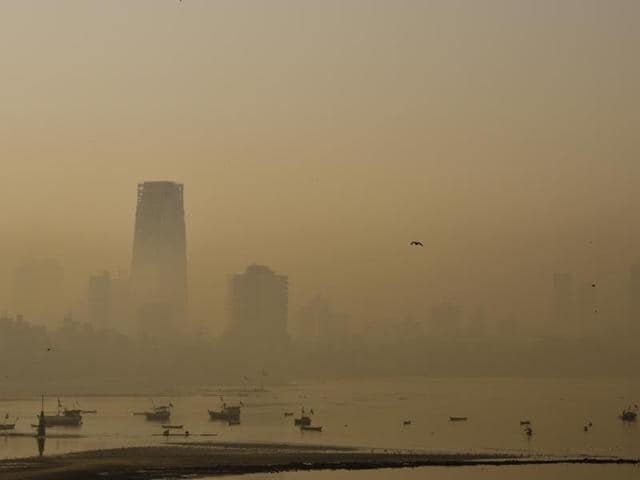Mumbai has been grappling with significant air pollution issues, primarily attributed to vehicular emissions, industrial activities, and construction dust. The city’s air quality often surpasses safe limits, impacting the health of its residents. Mumbai’s coastal location and weather patterns contribute to the trapping of pollutants, exacerbating air quality issues.

Air pollution can have a visible impact on the appearance of a city. High levels of pollutants, such as particulate matter and smog, can cause the skyline to appear hazy and discolored. In cities like Mumbai, where air pollution is a significant concern, residents may experience days when the atmosphere looks tinted or has a noticeable haze due to the concentration of pollutants in the air. This visual effect is a direct consequence of the particles and gases released into the atmosphere from various sources, including vehicles, industries, and construction activities.
Air pollution poses serious health risks to humans. In the case of Mumbai, where pollution levels can be high, prolonged exposure to polluted air can lead to various health issues. Common health effects include:
- Respiratory Problems: Air pollution can aggravate respiratory conditions such as asthma and chronic bronchitis. It may also cause short-term respiratory symptoms like coughing and throat irritation.
- Cardiovascular Issues: Long-term exposure to air pollution is associated with an increased risk of cardiovascular diseases, including heart attacks and strokes.
- Reduced Lung Function: Inhalation of pollutants can lead to a decline in lung function over time, particularly in vulnerable populations such as children and the elderly.
- Increased Allergies: Airborne pollutants can trigger allergies and worsen existing allergic conditions.
- Cancer Risk: Certain air pollutants, such as particulate matter and certain chemicals, are linked to an increased risk of developing cancer.
- Neurological Effects: Emerging research suggests that air pollution may have adverse effects on the nervous system, potentially contributing to cognitive decline and neurological disorders.
Efforts to improve air quality, reduce emissions, and promote public awareness are crucial in safeguarding the health of the population in areas affected by air pollution. Collaborative efforts involving government, industries, and the public are essential to implement effective solutions and mitigate the adverse effects of air pollution in the city.
The history of air pollution in Mumbai dates back several decades, intensifying with rapid urbanization and industrialization. The city’s growth has led to a surge in vehicular traffic, industrial emissions, and construction activities, collectively contributing to deteriorating air quality.
Over the years, governmental initiatives and environmental regulations were implemented to curb pollution, but challenges persist. Efforts such as the introduction of cleaner technologies, the promotion of public transportation, and stricter emission standards have been part of ongoing strategies to address the issue.
However, the complex nature of Mumbai’s air pollution problem requires sustained commitment from various stakeholders to achieve long-term improvements and ensure a healthier environment for its residents.